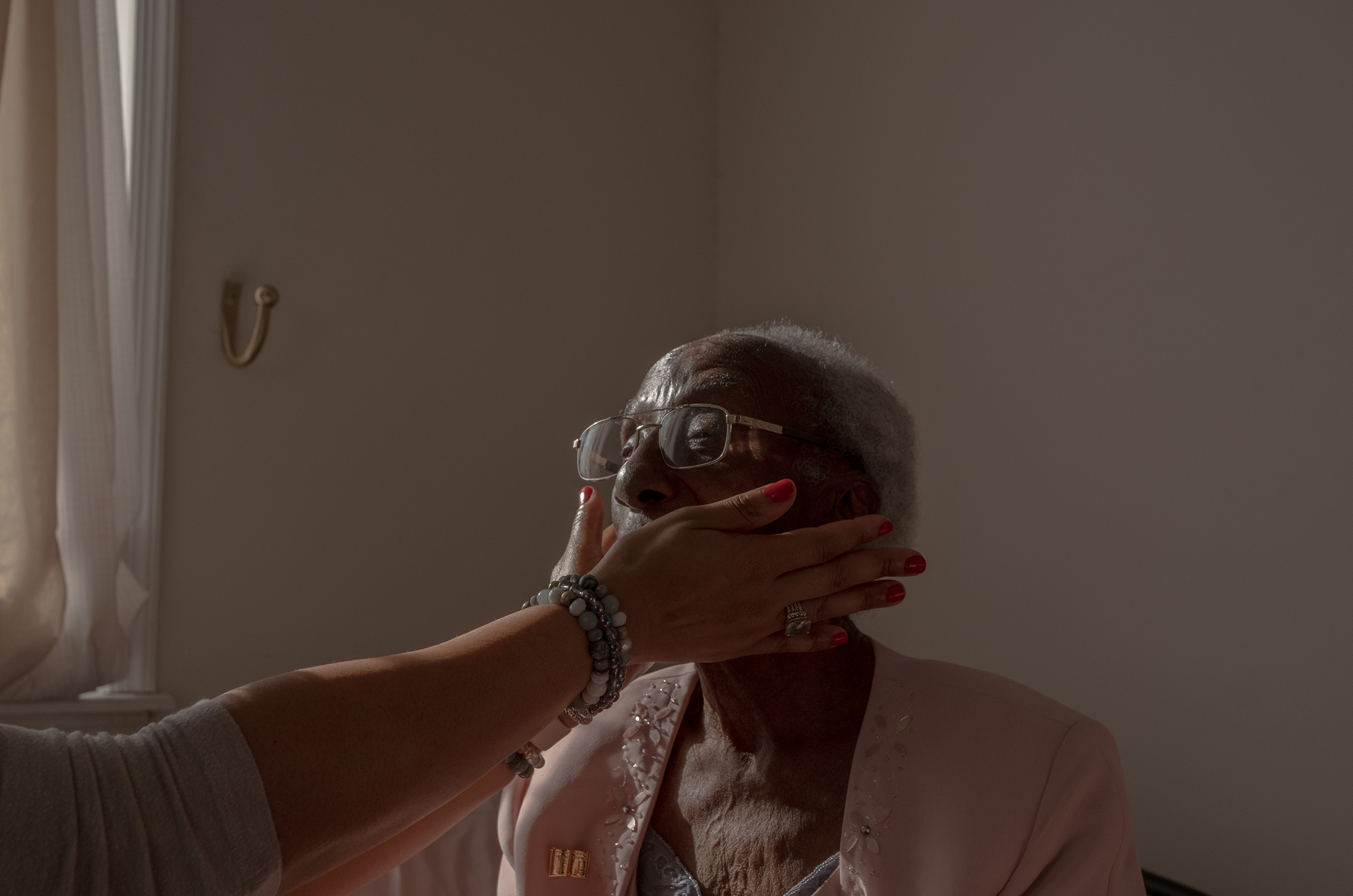On a cold October morning in Lander, Wyo., Liz Lightner makes a few mental notes as she sits by a stranger’s bedside. The man is 79, has lung cancer and is in a deep-sleep coma. He’s wearing a blue scuba-diving shirt that’s worn out and looks as if it’s been loved, washed and rewashed for many years. Besides the company of his cat, the man is alone and moments from dying.
Using only words, Lightner, 49, carries him away from a home that he can’t physically leave anymore and guides him under the sea, where she knows he used to be happy. She leans her head against his chest and tells him they’re now swimming together in the tropical ocean, where so many vibrant schools of fish surround them. She describes for him the striking blues and oranges of their fins, how the sun pierces through the still water and lights up the coral beneath them. She tells him he’s warm, weightless and floating.
Lightner sits beside the man for nearly seven hours. Before she leaves, she gently places his frail hand on his sleeping cat and reassures him that his beloved pet will be fine when he’s gone. Then she opens a window—a symbolic and spiritual gesture of passage to whatever comes next.
The man died the next day, which is expected in Lightner’s new line of work. She’s a death doula, an end-of-life coach who helps the terminally ill be at peace with dying—and she’s among hundreds of Americans who’ve embraced the rising occupation during the pandemic.
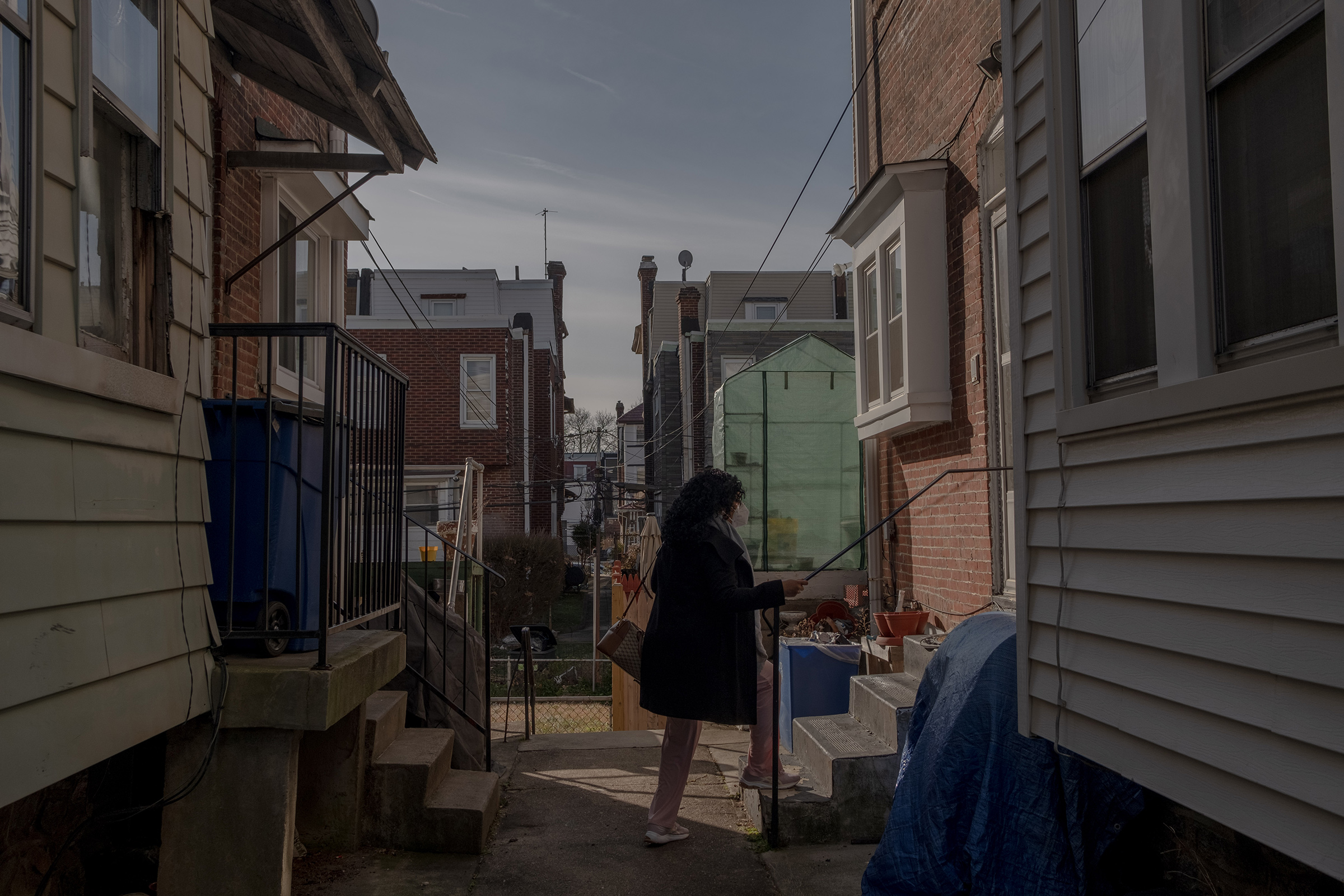
Since COVID-19 emerged in early 2020, organizations that support and train U.S. death doulas have seen significant spikes in membership and enrollment. The National End-of-Life Doula Alliance grew to more than 1,000 members in 2021, from just 200 in 2019. More than 600 people enrolled in the University of Vermont’s end-of-life doula program in 2021, compared with fewer than 200 in 2017 when the program began. Some training groups say enrollment has more than tripled during the pandemic, as has the number of people seeking help for themselves and others facing imminent death. Pre-pandemic, Merilynne Rush says her training group, the Dying Year, would get about six calls a year from people looking for an end-of-life doula. Now she fields three to four calls a month. “We’re seeing a huge flurry of interest,” she says.
The ‘wake-up call’
That’s no surprise as the U.S. death toll from COVID-19 surpasses 866,000. In the past 22 months, “the awareness of death was in all of our faces,” says Suzanne O’Brien, whose group, Doulagivers, trained more than 1,000 people in 2021, up from roughly 380 in 2019. At the height of the pandemic in New York City, temporary morgues, including refrigerated trucks, appeared near overwhelmed hospitals. On the Internet, pleas for funeral assistance flooded in from thousands of families who’d lost loved ones to the virus.
“Whether we wanted to look away or not, we really couldn’t,” O’Brien says. That’s forced many Americans to reckon with their own mortality in new ways.
For one, more young people are writing living wills, according to several estate planners and national surveys. In 2020, a Gallup poll found that the percentage of Americans who said they have a will increased only to 45% from 40% in 2005. But for the first time, according to a Caring.com survey, people ages 18 to 34 were more likely in 2021 to have a will than those ages 35 to 54. The younger generation was the most likely to cite COVID-19 as a major reason to plan for death. “For the first time in a generation, everyone is experiencing the possibility that death may touch their lives—not someday, but now,” says Ann Burns, president of the American College of Trust and Estate Counsel.
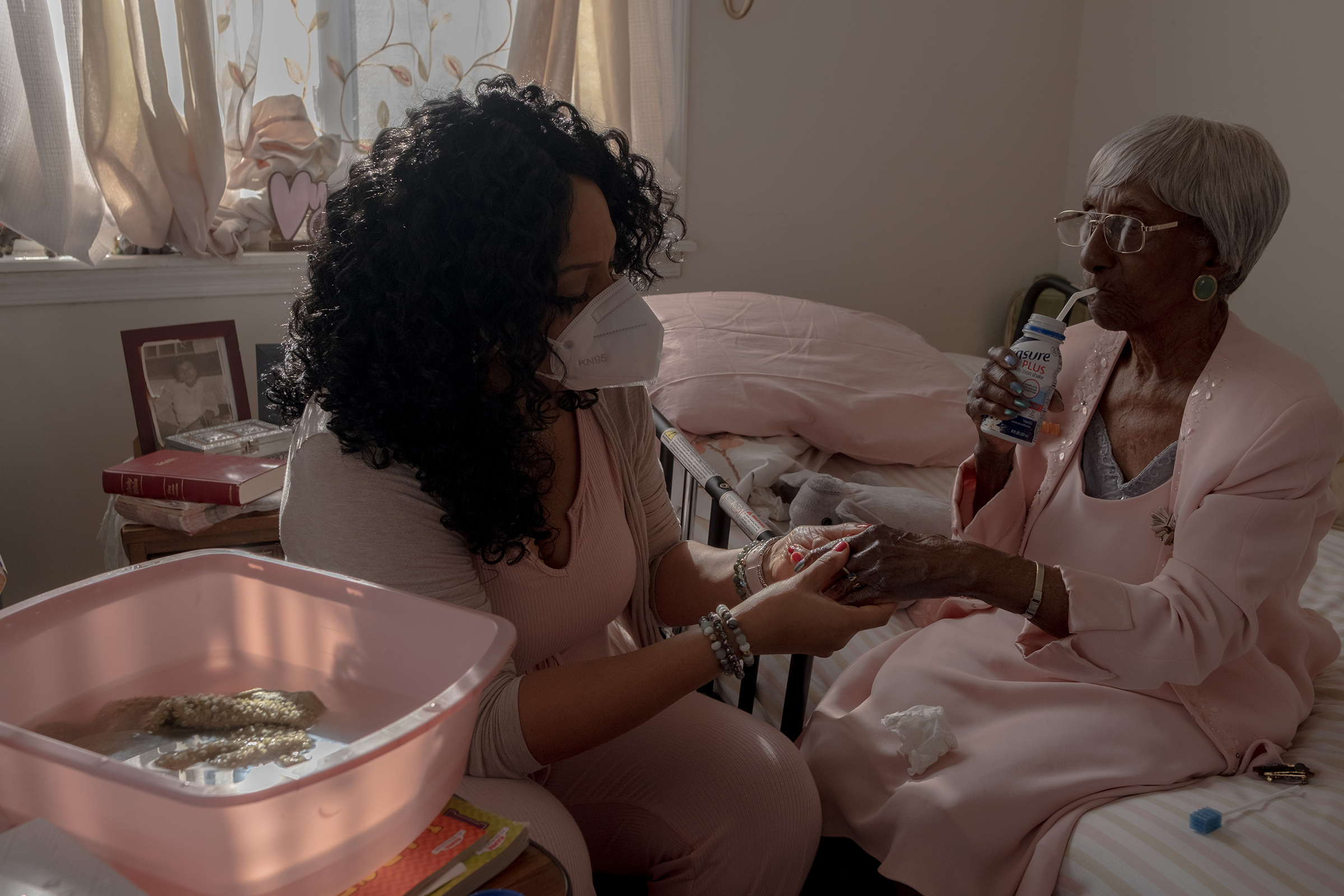
The Sept. 11 attacks prompted a similar uptick in end-of-life planning after Americans saw nearly 3,000 people die in one day, according to Bill Kirchick, a Boston-based estate attorney. The pandemic was a far greater shock to the system. “To some people,” Kirchick says, “it was a wake-up call.”
For many others, it was a call to action. After Tracy Yost, who lives in Danbury, Conn., was furloughed from her job as a fitness manager at a retirement community in 2020, she says she’d call 100 of the residents twice a week to check in. It didn’t take long to hear how “wildly isolated” they sounded. At the same time, Yost’s friends were saying their final goodbyes to their dying parents through video calls.
“I just thought, Oh my God. We have lost our way,” says Yost, 52, who became a death doula largely because she feared the pandemic would create a new generation of people traumatized by death. “We already live in a society that doesn’t talk about dying,” Yost says, adding that the taboo nature of death may be reflected in the majority of Americans who don’t have their advanced health care directives in order. Without the pandemic, Yost says she likely never would have become a doula.


On a September day in Chattanooga, Tenn., Sara Web, 38, meets with a young woman in her 20s. The woman is lost, scared and confused as her mother nears the end of her decade-long battle with cancer. Web gently draws information from the daughter as they talk about what her mother has meant to her at every stage of life. The way she cared for her daughter when she was ill; the way they decorated the house at Christmas; the beautiful moments that the younger woman will always carry with her.
One recurring happy moment stands out—the mother and daughter’s shared love of The Wizard of Oz. The dying woman has been sleeping more and more, but when Web puts on the movie, she smiles and stays mostly awake for the film. The mother and daughter absorb their final moments together on the couch as Web watches over them. Soon after, as the mother loses consciousness and enters the final stages of dying, her daughter quietly sings Over the Rainbow.
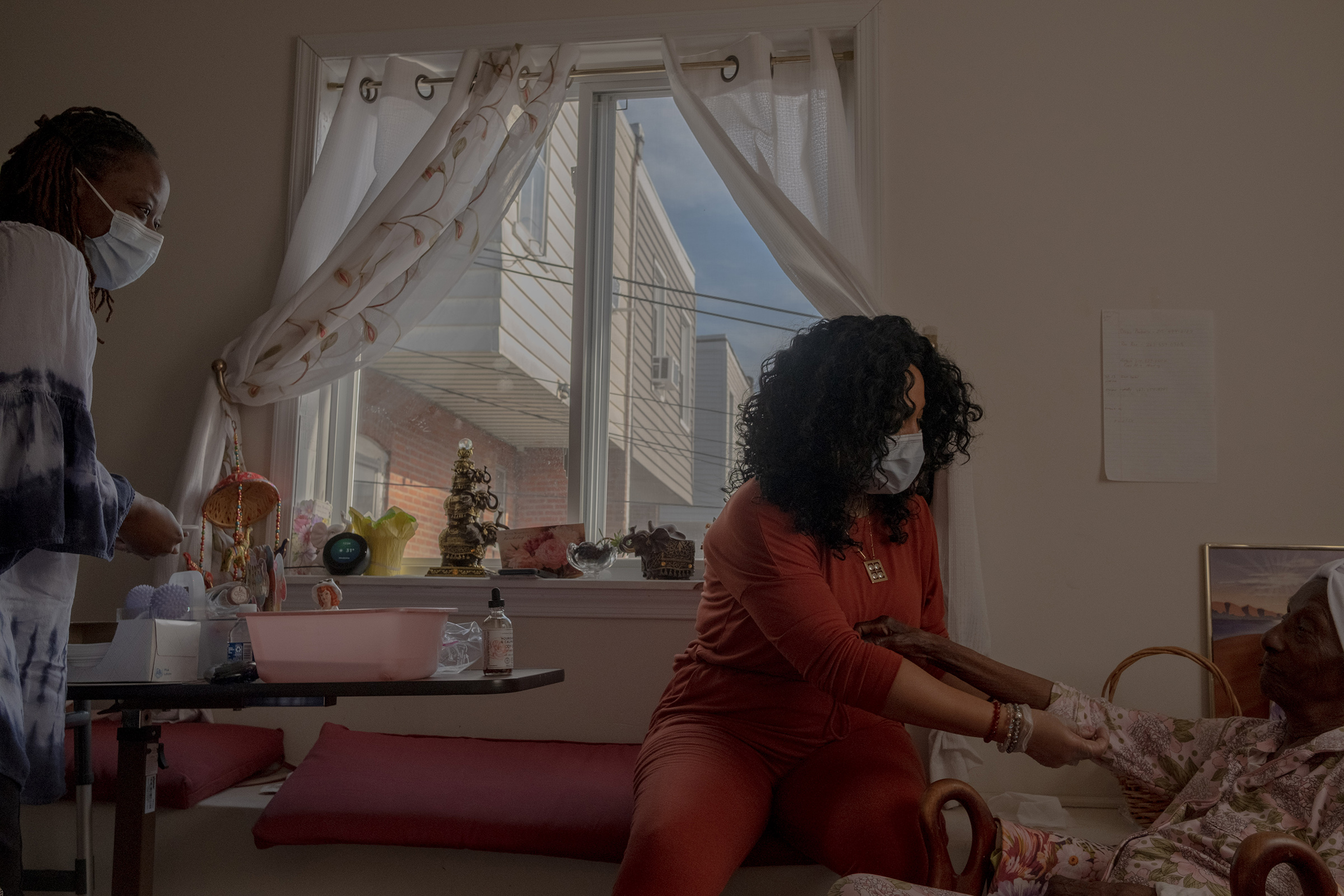
Before the pandemic, Web’s job description looked vastly different. As a former animal-enrichment coordinator, she spent her workdays coming up with creative ways to entertain the creatures at the Tennessee Aquarium—a job she lovingly compares to that of a cruise-ship director. She’s filled kiddie pools with colorful plastic balls for the mongooses to dive in and out of. She’s made giant turkeys out of construction paper and paper bags, filling them with fruits and vegetables for the lemurs. She’s fed alligators in front of live audiences.
When she was laid off in October 2020, Web says, she faced low prospects of finding another comparable zoo or aquarium job, so she pursued a career that’s been at the back of her mind since her grandmother died of pancreatic cancer more than 17 years ago. She became a death doula, in hopes that fewer people would spend their final moments surrounded by panicked loved ones the way her 82-year-old grandmother did in 2004. At age 21, it was the first time Web had experienced such a major loss. The diagnosis rocked the rest of the family.
“I was very lost in that experience,” says Web, who was more than 1,000 miles away when her grandmother died. “No one else seemed to know what to do.” Web wishes she and her family could have better understood the disease, the dying process and how much time they realistically had left, so they could’ve better comforted their matriarch. “I promised, no matter what, I would never let that happen again,” Web says.
Before she was laid off at the aquarium, Web kept two reminders of the finality of life on her office desk: a computer background image of the universe and a papier-mâché skull. “My motto was, the universe is big and life is short,” she says.
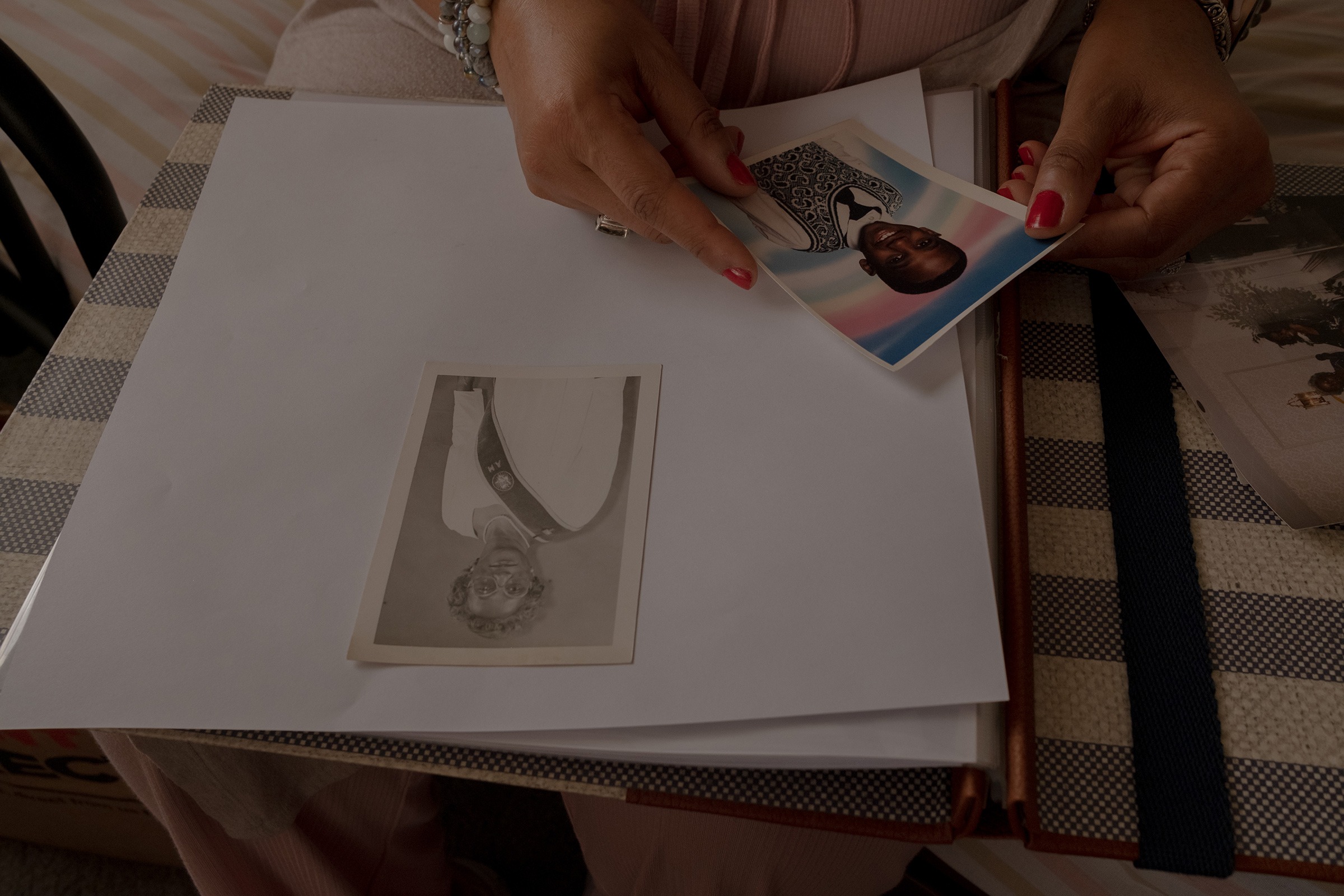
What it takes to be a death doula
Besides a whole lot of compassion, not much is required to become a death doula. During a recent day’s work with a woman who had stopped treatments for breast cancer, Yost helped her jot down stories to share with her children about her childhood visits to her family in Italy. When she noticed how animated the woman had become, Yost pulled up Google maps so they could virtually walk through the same mountain village where her grandparents lived. The woman cried as the memories came flooding back.
“The gift of time is what makes doula work so special and meaningful,” says Angela Shook, president of the National End-of-Life Doula Alliance.
Since doulas do not administer or prescribe medication, the industry is unregulated and does not require a license. Most prospective doulas take training courses that several organizations offer in person or online for as little as $40 up to $1,000. The lessons are as scientific as they are emotional. Depending on the courses, which can span weeks, prospective doulas typically learn how to identify end-of-life stages. They study the 10 most common terminal illnesses and their leading or unique symptoms. They learn the physiology of how the human body works, the order in which organs usually shut down. Some courses focus on how to care for a terminally ill child, while others teach doulas simply how to talk to families.
Death doulas often work in tandem with hospice workers, who are authorized to give pain-relief medication, treat wounds, monitor vitals and assist in other clinical tasks that the doulas aren’t qualified to do. But death doulas, who are usually less restricted by work schedules, step in to fill the emotional voids, says Michelle Thornhill, 52, who has been a death doula for 12 years.
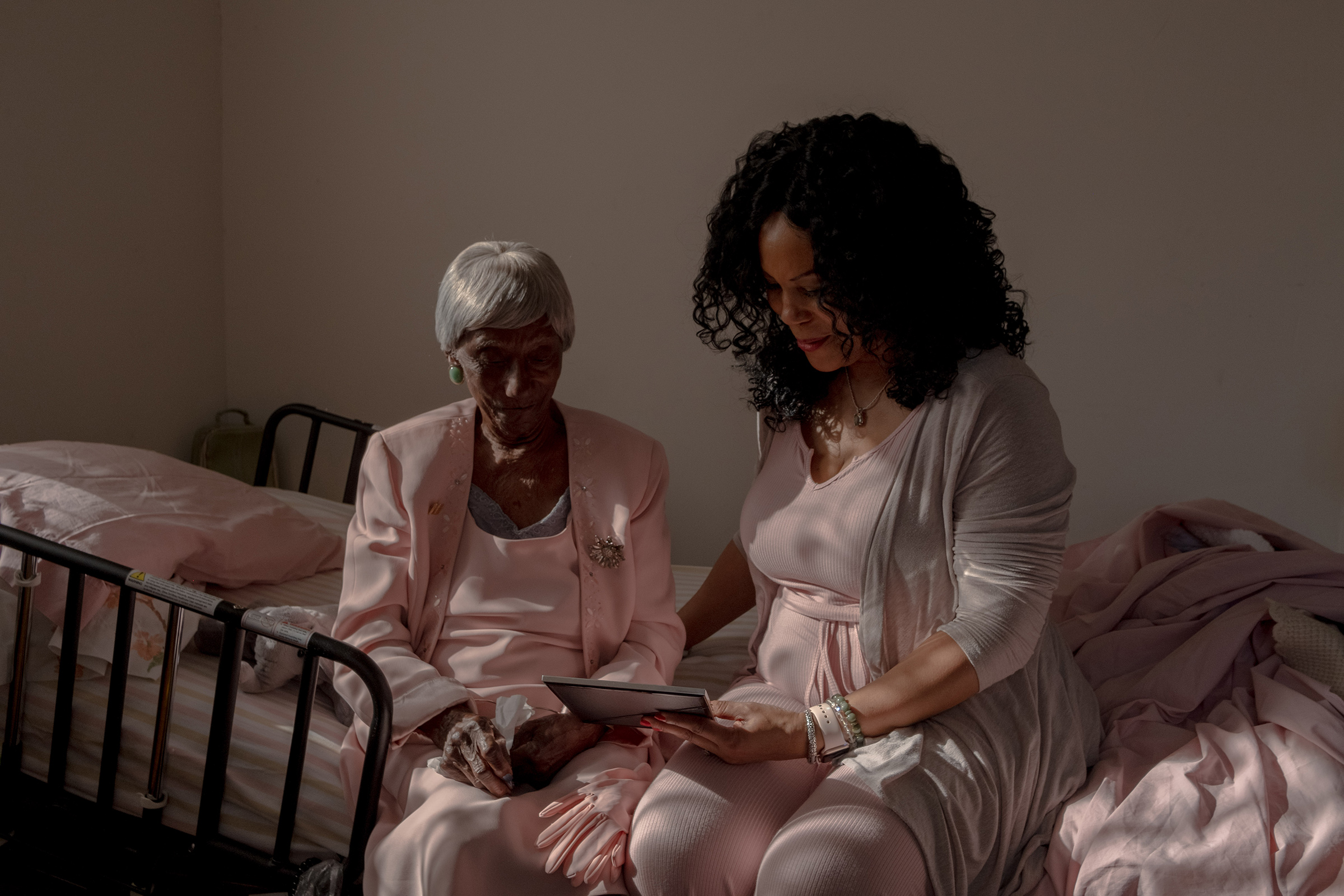
They can help write farewell letters or stockpile memos to surviving loved ones for milestones they’ll miss, such as weddings, birthdays and graduations. They can listen to someone’s life story for hours on end or hear out their proudest moments and worst mistakes. “I hear stories that maybe they’ve never told anyone before,” Web says. “I hear stories that may never be heard again.” Upon request, death doulas can make sure Whitney Houston is playing in the background, fill the house with scents of Christmas cookies at the moment of death or find new homes for pets that will be left behind.
It's very human to want to nurture and support somebody through any type of suffering.
In June, Shook says, she helped a woman find a loving new family for her two cats, which was instrumental to giving her peace. Before the woman entered a hospital for the last time, Shook bought her stuffed animals that looked just like the felines, so that she’d have them near as she died. “It’s very human to want to nurture and support somebody through any type of suffering,” says Shook, who is also a volunteer hospice manager in northern Michigan.
To free up family members to focus solely on their dying loved one, death doulas can help make funeral arrangements and handle other logistics. In Pennsylvania, Thornhill spends six days a week caring for her 101-year-old client, Estella Stackhouse, who has dementia. She also supports Stackhouse’s granddaughter and primary caregiver by creating care checklists and meal schedules, crafting responses to people who call and text, and limiting the granddaughter to making only one important decision a day. With COVID-19 reducing the number of visitors Stackhouse gets, Thornhill’s role as a caretaker and liaison has become more important. “It ranks right up there with oxygen,” she says.


The impact, and not the pay, is why many are drawn to the work. Some doulas offer their services for free, Shook says, while some operate on a sliding scale based on the client’s ability to pay. Others, including those who have their own private business, typically can charge $45 to $100 per hour, though prices depend on many factors, including location and duration of service. Many doulas offer packaged rates that Shook has seen go from $500 to $5,000. “It’s all over the place,” Shook says, adding that the costs are not covered by any health-insurance plans.
Web has yet to make a profit after leaving her over-$40,000-a-year aquarium job and pouring about $5,000 into her new doula business, including costs for training courses, office space, licenses, advertising, websites and insurance. But in the past six months, she’s felt her impact, which has helped heal some of her own internal wounds from her grandmother’s death.
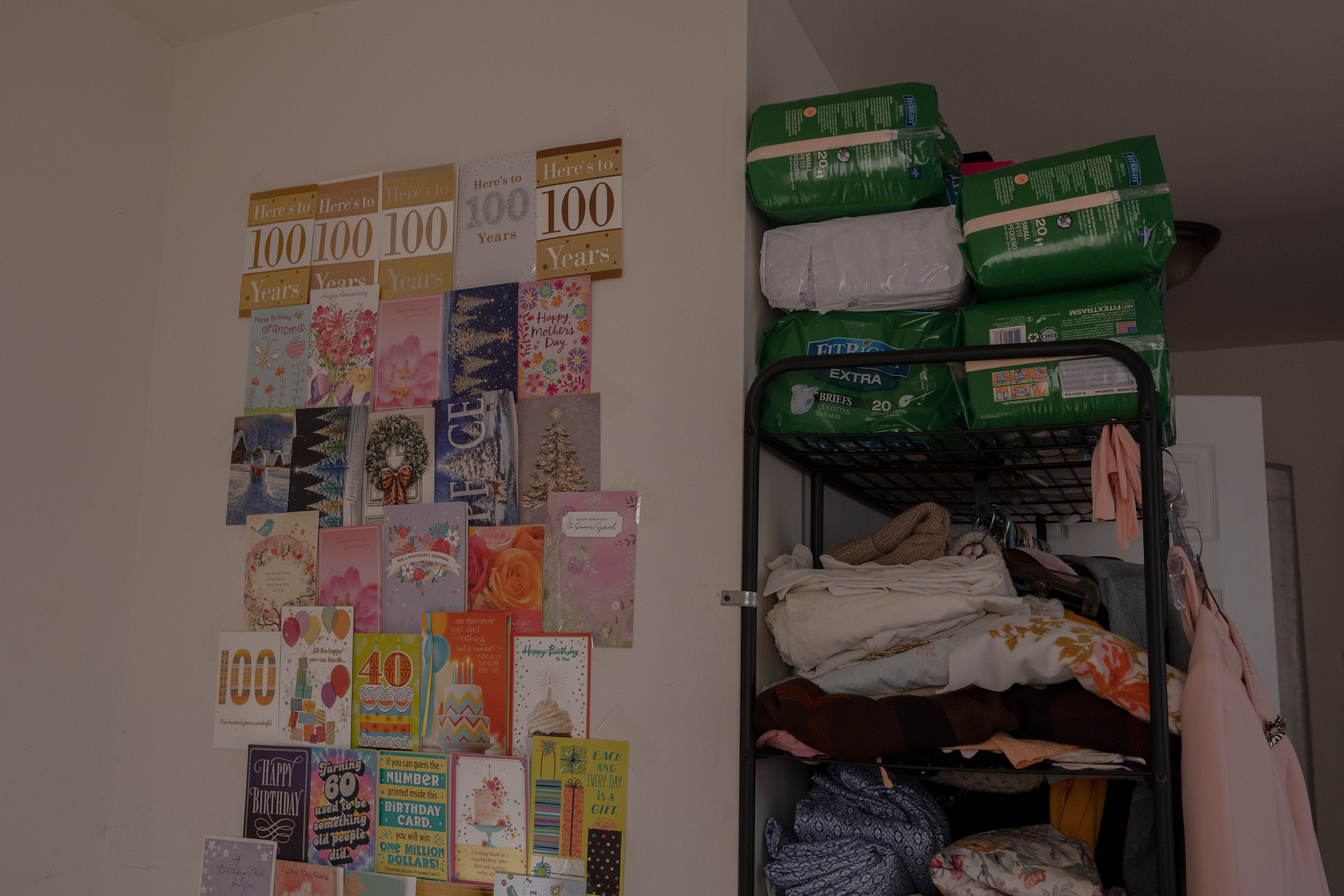
A misunderstood job
The job is often misunderstood, partially because many feel it’s a morbid occupation. But death doulas disagree, saying there’s often more dignity in the work than sadness. Web says her mother was horrified when she started training to become a doula in spring 2021. “She thought I would be devastated 24/7 because I’m a sensitive person,” Web says. But since Web launched her doula business early in June, she hasn’t felt that way at all. “I can’t stop people from dying,” she says. “All I can do is be there to support them.”
Dying is one experience every person has to go through. But that doesn’t necessarily get easier to accept with time, Yost has learned. “Fear is present at all ages,” she says. And because there’s only one chance to do death right, several doulas say it’s common for personal grief and regrets to drive many toward end-of-life work.
I can't stop people from dying. All I can do is be there to support them.
In March 2019, Lightner’s father died following complications from a lung biopsy. Before that, he had spent about two months intubated and hooked to a feeding tube and other life-sustaining equipment before he was removed from life support. Those months were challenging for Lightner, who knew her father had not wanted that for himself. “We carry guilt and we carry what-ifs,” she says. “Me becoming a death doula is partially me grieving this loss.”
Every Tuesday evening, Lightner virtually meets with about a dozen other new death doulas from around the country. They help one another navigate their careers, understand the logistics of their businesses and launch their websites. But most of the time, she says, they’re spending their weekly Zoom sessions working through their personal struggles and renewing one another’s hope.
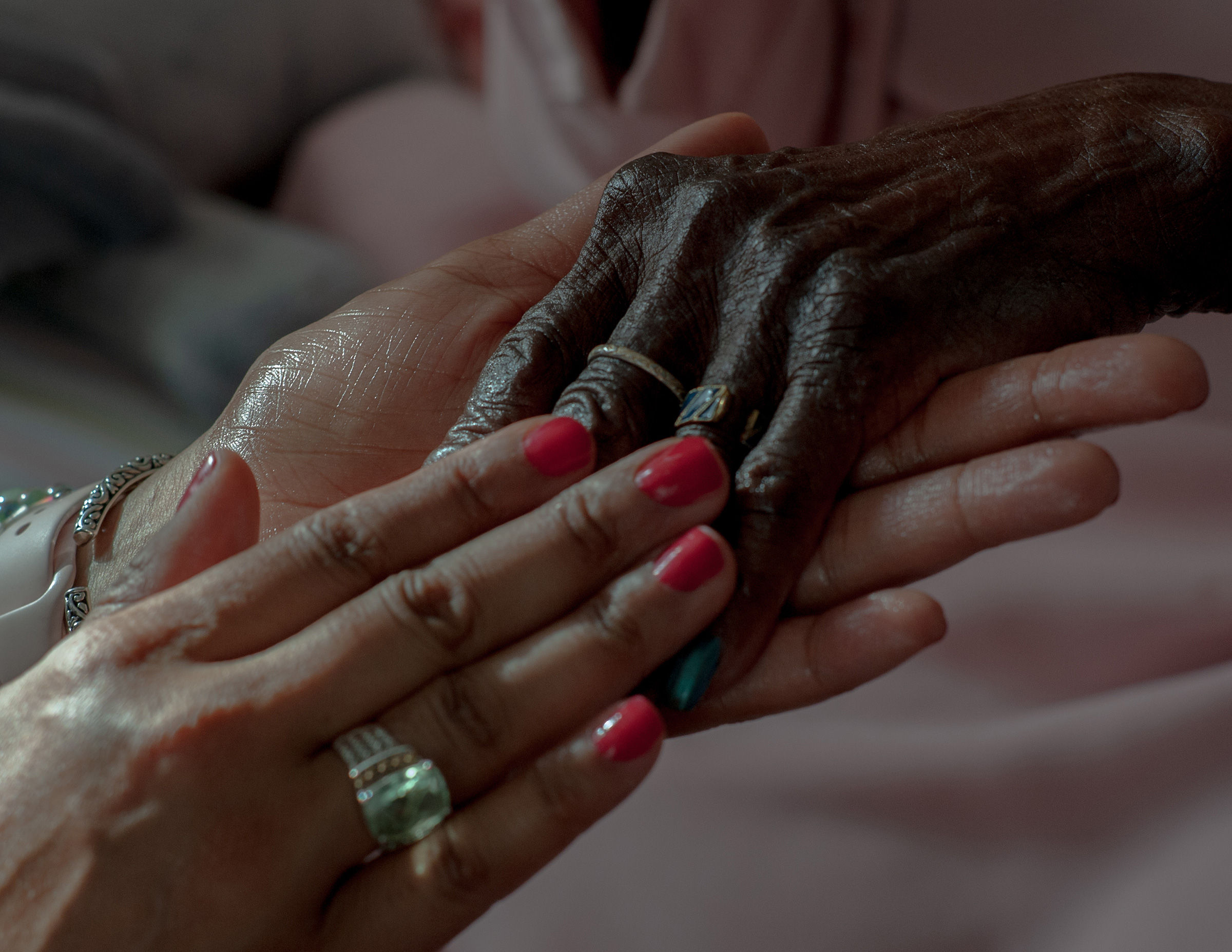
Among the new doulas are Patty and Greg Howe, a longtime married couple who are both terminally ill. In the five years since Greg was diagnosed with leukemia, the 66-year-old says he has come to a “place of just complete liberation.” His acceptance helped shape Patty’s outlook when she was diagnosed in February with liver cancer at age 69. “We have the choice to choose joy in everything,” Greg says. “It transformed me.”
The Howes have shed what they don’t need, including most of their material possessions and any petty problems that once burdened them. They now live out of a candlelit yurt in Ketchikan, Alaska, as they plan arrangements for other terminally ill people to use their beachfront house nearby as an end-of-life resort, where they can spend their last moments with their families. Since the pandemic, the Howes have immersed themselves in death-doula work, helping others reach the same sense of peace.
“It’s almost like we’ve taken a master’s class in death,” Greg says.
The history of how we die
Death wasn’t always so industrialized. More than a century ago, before there were coroners and funeral directors, it was normal for families and communities to take care of the deceased, according to Nukhet Varlik, a Rutgers University professor who specializes in the history of pandemics. Hospice care wasn’t introduced in the U.S. until the early 1970s, though people were still informally taking on the role of a death doula. “Death used to be revered as a sacred part of life’s journey, and we’ve completely removed it from our awareness,” O’Brien says. “In fact, we’re doing everything to run the other way.”
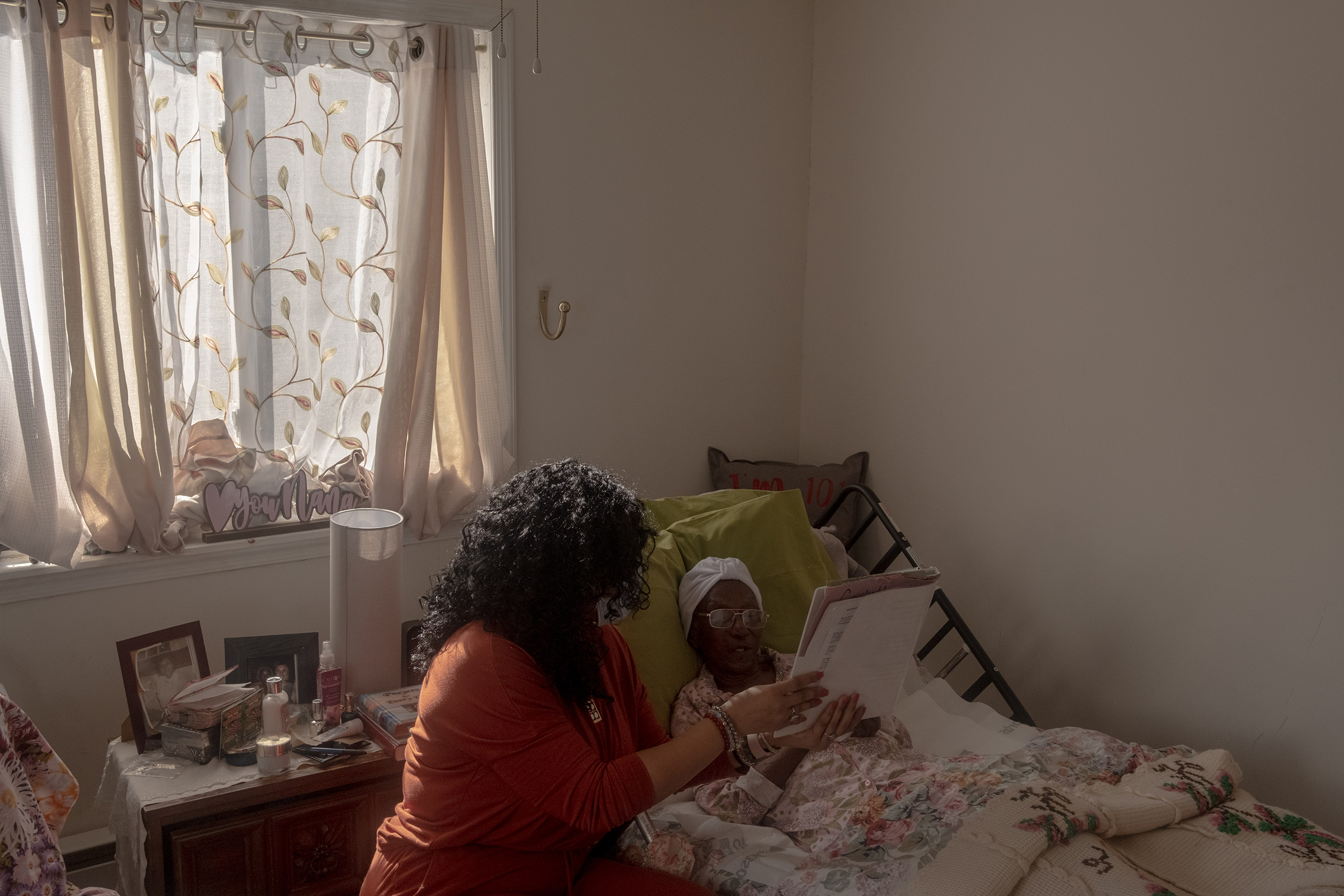
Death doulas today are trying to change that. In January 2021, when a dying man in frigid northern Michigan said he wanted to be back on a beach but was too sick to leave his house, Shook dipped his hand in a bowl she’d filled with sand. She lit citrus-scented candles around him and brought in a sunlamp to warm his body as the sound of ocean waves crashed out of speakers in the background.
A month later, when Shook realized a dying woman who loved lilacs would not live long enough to watch them bloom again in her yard, she burned lilac candles in the woman’s room, hung large photos of the purple plants on her walls and massaged her hands and feet with lilac-scented oils.
“Death doesn’t have to be this medical event,” Shook says. “There’s a lot of beauty.”
More Must-Reads from TIME
- Donald Trump Is TIME's 2024 Person of the Year
- TIME’s Top 10 Photos of 2024
- Why Gen Z Is Drinking Less
- The Best Movies About Cooking
- Why Is Anxiety Worse at Night?
- A Head-to-Toe Guide to Treating Dry Skin
- Why Street Cats Are Taking Over Urban Neighborhoods
- Column: Jimmy Carter’s Global Legacy Was Moral Clarity
Contact us at letters@time.com
